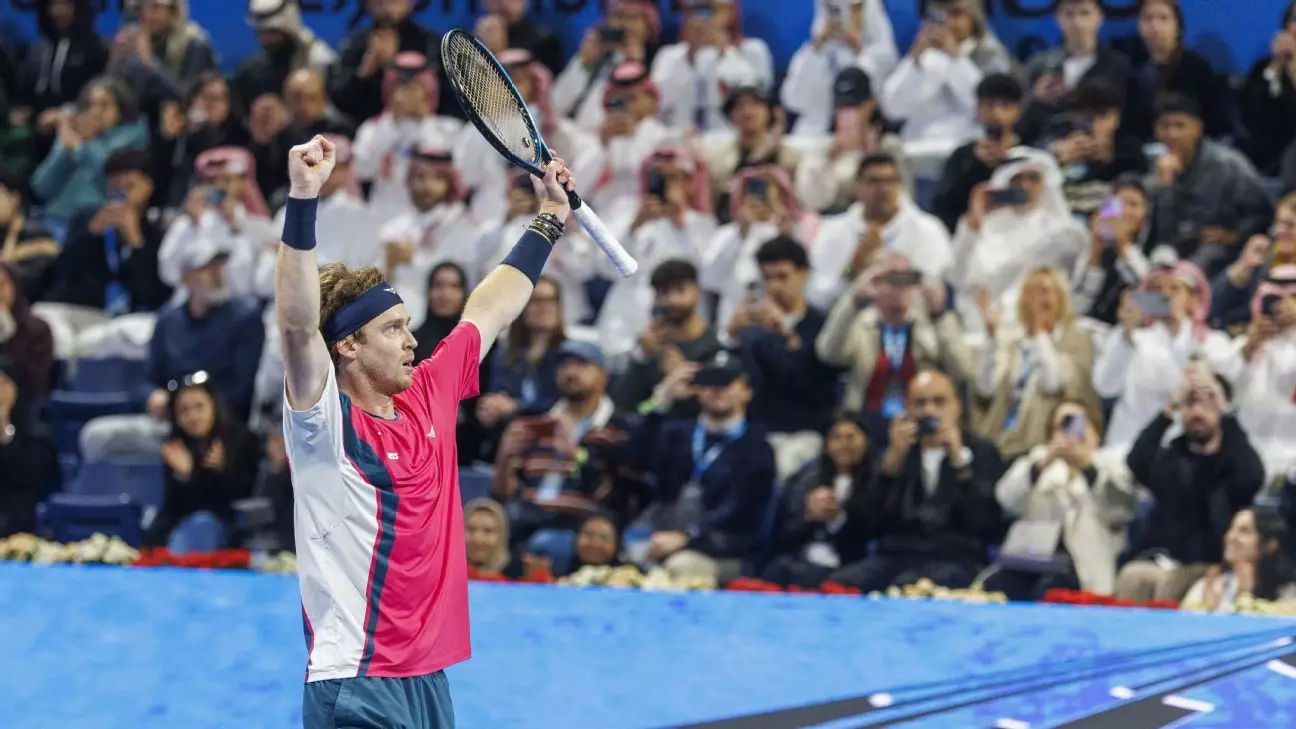In the high-stakes universe of professional tennis, mental fortitude can often be the determining factor between victory and defeat. Andrey Rublev, currently ranked No. 9 in the world, has been a prime example of this reality. Recently, he disclosed his journey toward mental well-being, attributing part of his recovery to conversations with legendary two-time Grand Slam champion Marat Safin. After years of battling anxiety and stress on and off the court, Rublev finds himself in a transformative phase, demonstrating the value of mental health advocacy in sports.
Rublev’s struggles with emotional regulation during matches had put a significant strain on his performance. The 27-year-old Russian reflects on a particularly challenging period when he felt trapped in a cycle of self-doubt and confusion. “I was in a loop… lost with myself for a couple of years,” he admitted, highlighting how prolonged mental strain can lead to existential questioning. Such introspection is not rare among athletes, many of whom face immense public pressure to perform. The fact that Rublev emerged from this difficult period is a testament to the resilience that lies within him.
The pivotal moment in Rublev’s journey occurred last July when he reached out to Safin, who has a storied history of emotional outbursts on the court. Safin’s understanding of the mental toll that competitive sports can have provided Rublev a different perspective on managing his emotions. “He made me understand myself,” Rublev shared, signifying how mentorship can play a crucial role in an athlete’s developmental process. The discussions helped Rublev gain clarity and gradually shift toward a healthier mindset.
After years of seeking solutions that didn’t yield results, including a stint on antidepressants that he ultimately discontinued, Rublev found a sense of neutrality rather than a euphoric happiness. By embracing this neutral state, he is better equipped to handle the pressures of the game without being overwhelmed by negativity. This transformation reveals an important narrative about mental health—it’s not always about reaching the pinnacle of happiness but rather establishing a foundation that allows one to thrive in competition.
As Rublev prepares for his match against French qualifier Quentin Halys in Dubai, he does so with a refreshing mindset. The baggage associated with his past performances, including a controversial incident from the previous year’s tournament, no longer weighs heavily on him. Instead, his focus is on moving forward, demonstrating growth and resilience.
Rublev’s experiences serve as an essential reminder for athletes and fans alike that struggles with mental health are common, yet often not openly discussed in competitive sports. By vocalizing his journey, Rublev is fostering a dialogue that encourages others who face similar battles to seek help and find their own paths towards emotional stability. His story is not merely one of recovery but also of empowerment—encouraging a new generation of athletes to prioritize mental health in their pursuit of excellence.


Leave a Reply